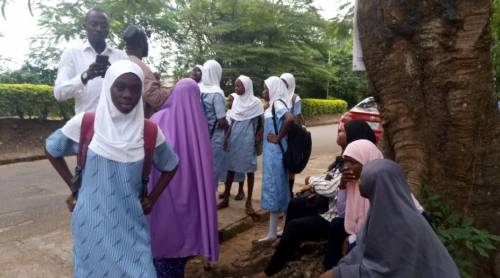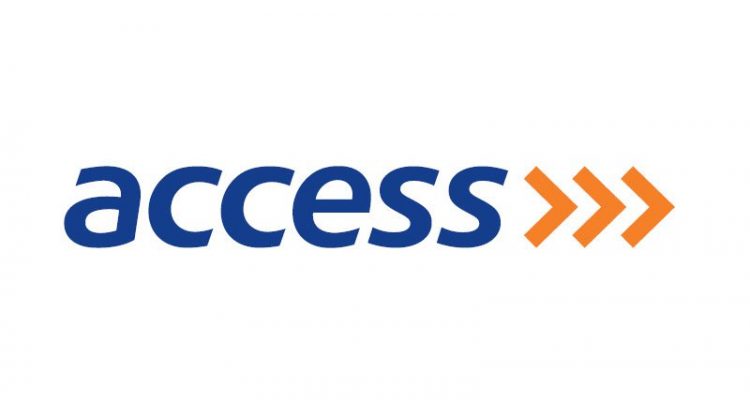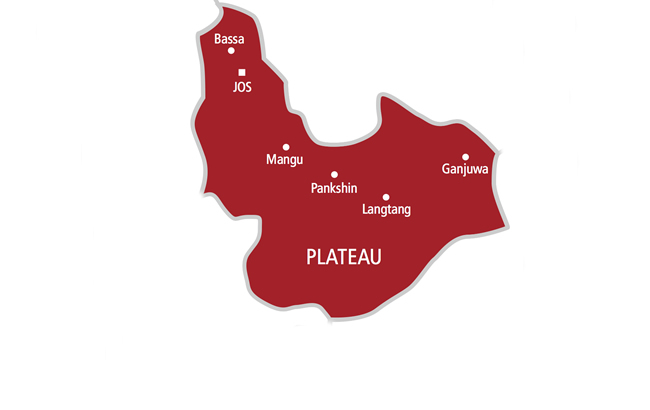That Hijab Controversy Raging In UI’s International School By ‘Fisayo Soyombo


For two days last week, students of the International School, Ibadan, did not take classes; and it was not down to an industrial action. Well, students of the parent institution — the University of Ibadan (UI) — are at home as well. The plight of UI students is understandable: the Academic ‘Strike’ Union of Universities (ASUU) is on one of its trademark industrial actions as part of its never-ending funding feud with the government. But ISI students experienced a disruption in academic activity due to a needless, in fact irritating, bickering over the propriety of hijabs in a school environment.
For a while, some parents of Muslim pupils of ISI had been trying to convince the management to allow hijab wearing in the school but the management was unwilling to discuss. Frustrated by the continuous snob, the parents took laws into their hands. On November 9, writing under the name International School Muslim Parents’ Forum (ISMPF), they notified the school of their decision to enforce their desire. Three days later, on Monday November 12, some of these parents called their wards to the ISI car park and distributed hijabs to them. The Principal, Mrs Phibean Olowe, sighted them, and instantly ended the ongoing school assembly. The school was shut, technically, for two days, but since resuming, the hijab-donning pupils have not tasted classes. On Wednesday, they were allowed in but locked in the library; on Thursday and Friday, they were turned back altogether.
The Muslim parents argue that their right to hijab comes from the Nigerian Constitution’s recognition of the freedom of association and religion. But the position of the ISI Court of Governors, chaired by the Deputy Vice Chancellor (Administration) of UI, Professor Abideen Aderinto, is clear. The current dress code will be maintained; ISI is a private school with its own rules; a 55-year-old dress culture will not be upended. The real issues, though, are deeper.
I have read yes and no arguments on the use of hijabs in ISI, but I still haven’t heard — perhaps I haven’t been voracious enough exactly why this apparel is important to the Muslim. What does the hijab represent? Does it harm a Christian, pagan or traditionalist? Does it unsettle the learning environment?
I have been fascinated by the 31st verse of the 24th chapter of the Quran, known as Surah An-Nur (the light), which justifies the use of the hijab: And say to the believing women that they should lower their gaze and guard their private parts; that they should not display their beauty and ornaments except what (must ordinarily) appear thereof; that they should draw their khimār over their breasts and not display their beauty except to their husband, their fathers, their husband’s fathers, their sons, their husbands’ sons, their brothers or their brothers’ sons, or their sisters’ sons, or their women, or the slaves whom their right hands possess, or male servants free of physical needs, or small children who have no sense of the shame of sex; and that they should not strike their feet in order to draw attention to their hidden ornaments.
I honestly cannot understand the opposition to an apparel that does nothing other than encourage modesty, humility and sexual purity. For context: I’m Christian; so I have been, so will I forever be.
One underlying reason for the anti-hijab sentiment among some Christians is the feeling that Muslims are trying to dominate Christians. They will deny but if you’re looking for them around you, they are the ones who say hijabs can’t be worn so long nuns or priests aren’t allowed to show up in school in their religious attires. Yet it’s an argument that falls flat before it has ever been shot — because they compare a mere apparel with a full-fledged attire. If you look further, these people will tell you ISI Muslim parents should take their wards to an Ansar-ud-Deen or Nawar-ud-Deen school. But until a Muslim parent has taken his ward to a St. Peter’s College or a Catholic secondary school, he has done no wrong. ISI is a secular school, hence both Christians and Muslims should be welcome.
I have studied the much-vaunted ISI rules and regulations, and I’m still at a loss how hijab wearing violates the document. The document states clearly how students should be dressed. More importantly, it lists the adornments/ornaments that should not be found on a student. These include: attachments, wigs, weave-on, bangles, necklaces, chains, rings, dangling ear-rings, jeans, pencil trousers and slim-fitted shirts/trousers. Nowhere in that document is the hijab mentioned; tellingly, what this means is that the document is dated and in need of some remodelling.
With ISI standing firm on its rejection of hijabs and Muslim parents also unyielding, it appears the matter is destined for a court. My bet is that ISI would lose — the Muslims can indeed lay claim to violation of a fundamental right of theirs. Section 38 (1) of the Constitution states: Every person shall be entitled to freedom of thought, conscience and religion, including freedom to change his religion or belief, and freedom (either alone or in community with others, and in public or in private) to manifest and propagate his religion or belief in worship, teaching, practice and observance.
Section 42 adds: A citizen of Nigeria of a particular community, ethnic group, place of origin, sex, religion or political opinion shall not, by reason only that he is such a person:- (a) be subjected either expressly by, or in the practical application of, any law in force in Nigeria or any executive or administrative action of the government, to disabilities or restrictions to which citizens of Nigeria of other communities, ethnic groups, places of origin, sex, religions or political opinions are not made subject.
If the ISI Muslim parents get lawyers who are able to substantially argue the violations of these sections by the rejection of hijab-wearing pupils from school, they have a case. In any case, there are encouraging precedents to suggest how such a case would be decided. Firdaus Amasa caused quite a stir in December 2017 when she insisted on wearing the hijab to her Call to Bar ceremony. The University of Ilorin law graduate was denied entry to the venue and, by extension, the legal profession. However, the Body of Benchers — the professional body concerned with the admission of prospective students into the Nigerian Law School — subsequently approved the use of the Islamic apparel. Amasa eventually attended her Call to Bar in July 2018. A similar case in Lagos public primary and secondary schools could potentially end in an Amasa-esque manner. A Lagos High Court had initially held that denying pupils the chance to wear hijab does not infringe on their constitutional rights. However, this judgement was upturned by the Appeal Court in July 2016. Only last week, the state government wrote schools to remind them hijabs remain allowed until the final determination of the matter by the Supreme Court.
What is happening in ISI is a manifestation of the level of ethnic, religious and associational intolerance not only in the wider University of Ibadan campus but in the society itself. The UI that should be championing freedom of speech and association has banned student unionism for close to two years now. Nothing more than management’s intolerance for dissenting student voice! Its Student Union Building is currently lying fallow. Even the non-political associations in that building, including the Union of Campus Journalists (UCJ), were chased out of their offices like petty thieves — without the chance to pick up just a piece of paper from their archives. That’s the same UCJ that has produced numerous high-grade journalists who have distinguished themselves nationally and internationally. I worry that without a secretariat to run its activities, without the chance to at least retrieve documents containing its rich history, UI risks inflicting a wedge between past and current generations of campus journalists. Long and short, UI is already writing the obituary of campus journalism. Nigerian journalism will suffer the primary damage, while the larger society won’t escape the knock-on effect.
Back to ISI, Nigeria as a heterogeneous country. With 250 ethnic groups who speak more than 250 languages, plus a multi-religious makeup that includes the highest population of Muslims in sub-Saharan Africa, we must stop expecting to look into any secular gathering and see a homogeneously-dressed audience, for example. Yes, look into an ISI and see clusters of neatly-worn hijabs over school uniforms. This is the reality of our diversity; we cannot run away from it. ISI is trying to, but it will be short-lived; the permanent solution would be for ISI to discuss with Muslim parents on how hijabs can be worn neatly, sizably and uniformly such that our religious diversity is represented without compromising the uniformity expected of pupils’ appearance.
Soyombo, former Editor of the TheCable and the International Centre for Investigative Reporting (ICIR), tweets @fisayosoyombo










